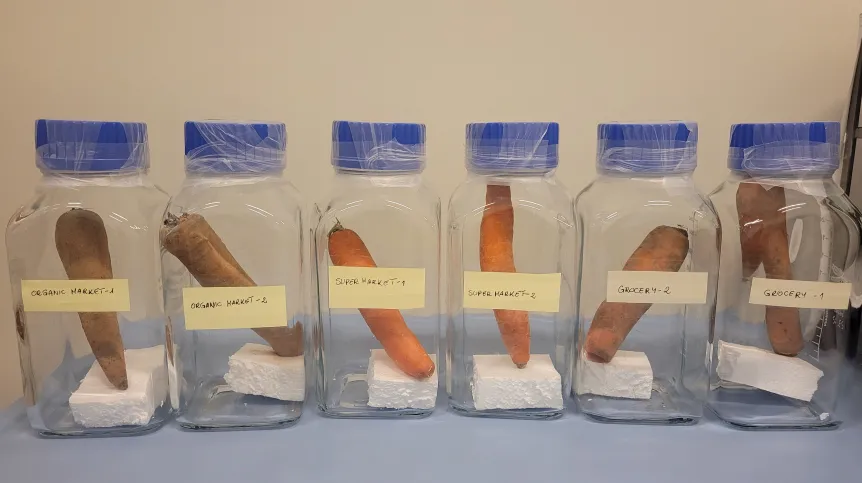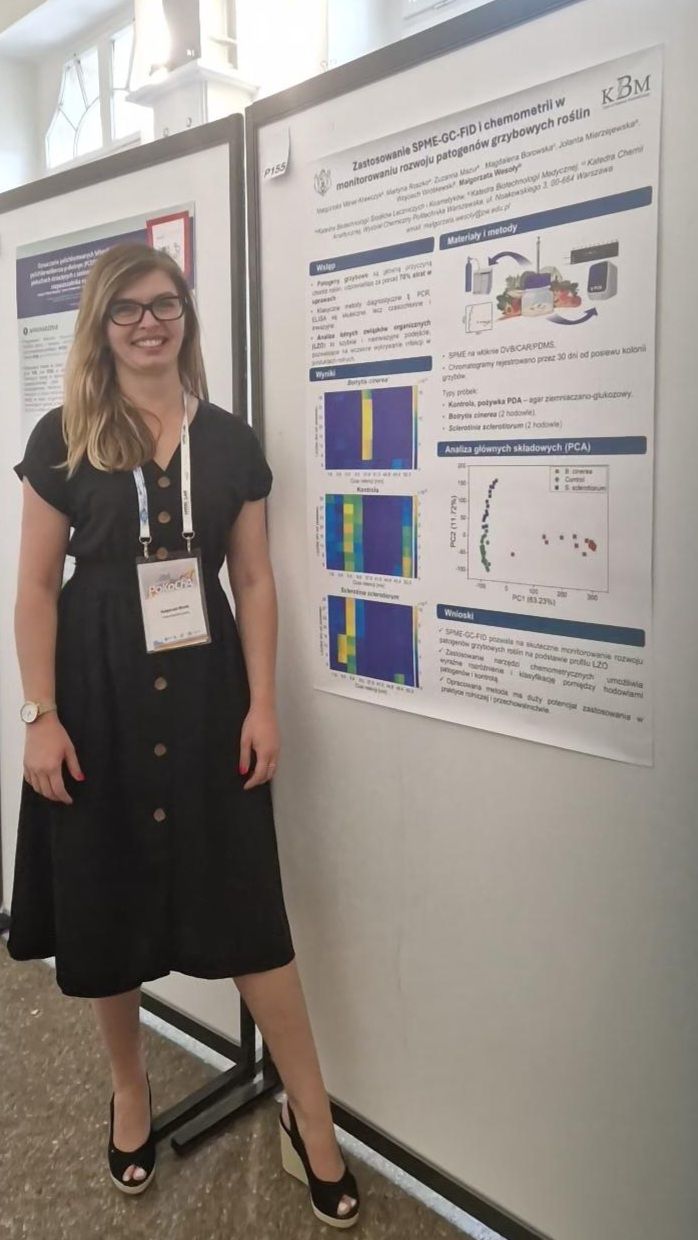
Scientists at the Warsaw University of Technology are developing a device that can detect plant diseases early by analyzing the unique “fragrance bouquet” of volatile organic compounds (VOCs) emitted by plants.
The device aims to identify pathogens in air samples before visible symptoms appear on crops such as carrots and onions. Poland is a leading producer of these vegetables, which are often affected by common diseases causing significant agricultural losses.
“Most of us have probably experienced opening the refrigerator and immediately smelling spoiled milk. Even if you do not know the exact compound, you smell something distinctive,” Małgorzata Wesoły, PhD, told Polish Press Agency (PAP).
“The same idea guides my project. I approach analysis holistically, not focusing on detecting any one specific substance, but creating a volatile profile of the vegetable — a healthy one, and one infected with a pathogen. Based on this ‘olfactory bouquet,’ infections can be detected in their early stages, often before visible symptoms appear.”

Wesoły’s team collects and analyzes VOC profiles released from vegetables stored in controlled conditions. Using chemometric methods to process multidimensional data, the researchers develop an odor fingerprint to distinguish healthy plants from infected ones.
Plant diseases cause an estimated 20% of agricultural losses annually. Early detection could help farmers reduce waste by improving harvest sorting and storage conditions.
The project is funded by the Polish National Science Centre and focuses on volatilomics—the study of VOCs released by living organisms.
Wesoły explained that current diagnostic methods such as molecular and serological tests are often expensive, time-consuming, and difficult to implement on a large scale. The new approach using VOC analysis aims to provide a faster, cost-effective alternative.
The device will collect air samples from storage environments and compare VOC profiles to a database to identify disease presence before damage is visible. This could enable timely intervention and prevent significant crop loss.
“By demonstrating the effectiveness of volatile organic compound analysis, our project will lay the foundation for rapid and cost-effective plant disease diagnostics,” Wesoły said.
PAP - Science in Poland
akp/ agt/













